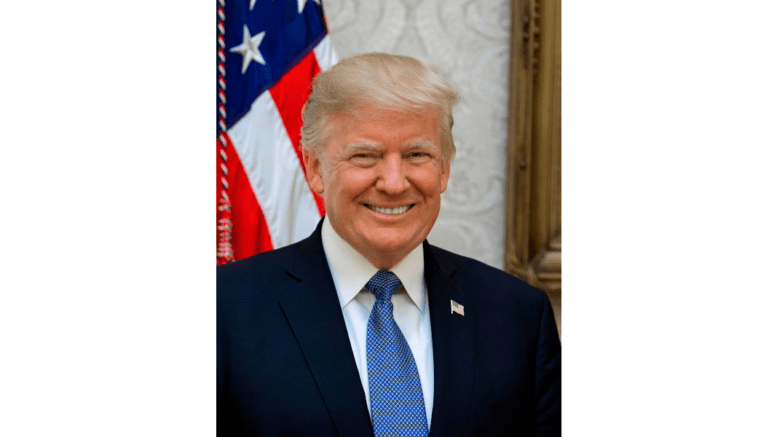By Jay Bookman, Georgia Recorder [This opinion article first appeared in the Georgia Recorder, republished with permission]
June 16, 2022
We can’t know what’s happening inside the secret, special-purpose grand jury convened at the Fulton County Courthouse in Atlanta. We can’t hear the sworn testimony being given about Donald Trump’s multiple efforts to overturn the 2020 elections here in Georgia; we can’t read the documents being subpoenaed; we can’t know what revelations the investigation might be uncovering.
But up in Washington, D.C., a much more public process is playing out, much of it focused on the same set of facts, narratives and players that Fulton County District Attorney Fani Willis is exploring here in Atlanta. And from that, we’re learning a lot.
For example, one of the core issues confronting Willis in her decision whether to prosecute Trump is the question of Trump’s intent. If the former president truly believed that he had carried Georgia and was simply trying to get an accurate vote count, then he committed no crime. But if he did know that he had lost the election but was trying to overturn it anyway, then this was indeed a coup attempt and prosecution is not only possible but necessary.
In a televised hearing by a U.S. House select committee this week, we got a pretty definitive answer to that particular question:
- Then-Attorney General Bill Barr testified via video that he had told Trump repeatedly and emphatically, in language too graphic to print here, that there was no evidence of significant vote fraud in Georgia or anywhere else. Barr’s replacement as attorney general later told Trump the same thing.
- Trump’s campaign manager, Bill Stepien, testified that he too told Trump that they had lost fair and square.
- Matt Oczkowski, the Trump campaign’s top data analyst, reaffirmed to Trump that he had lost fairly.
- Trump’s White House counsel, Pat Cipollone, also told him he had lost.
- Trump’s appointee as head of U.S. cybersecurity, Chris Krebs, investigated voting-machine fraud charges and announced on Twitter that “in every case of which we are aware, these claims either have been unsubstantiated or are technically incoherent.” Trump can’t claim he didn’t know about that tweet, because he fired Krebs the same day, also via Twitter, citing the tweet as the reason.
- A similar fate befell BJay Pak, the Trump-appointed U.S. attorney for northern Georgia. In testimony made public by the House committee this week, Pak said he had reported to his Justice Department superiors that he could find no evidence of election fraud in Georgia. For that, Trump demanded his resignation.
- And of course, in their now-infamous phone call with Trump, Georgia Secretary of State Brad Raffensperger and his staff also patiently walked through all the detailed evidence proving that there was no evidence of voting or election fraud.
So yes, Trump knew that he had lost. Trump knew because many well-informed, credible fellow Republicans – many of them his own appointees – had dared to tell him so on repeated occasions, citing actual evidence and data. The House committee has made that clear.
Thanks to the House committee, we may also get an early window into Raffensperger’s secret grand-jury testimony about Trump’s demand that Raffensperger “find” the 11,800 votes that Trump needed to carry Georgia.
For the moment, we don’t know if Raffensperger told the grand jury that he felt pressured by Trump to take improper or illegal actions to void the election results. We don’t know how Raffensperger interpreted Trump’s suggestion that Raffensperger might be criminally prosecuted if he did not reverse the outcome of the election, or whether he saw it as an effort to intimidate him.
But we do know that Raffensperger was also subpoenaed by and has testified to the House committee. According to the committee schedule, we will hear at least portions of his testimony in a public hearing next week.
Yet another Georgia angle that Willis will find interesting comes from a document recently made public by the Senate Judiciary Committee. It’s an unsent letter, drafted by Trump co-conspirators and circulated within the U.S. Department of Justice and elsewhere by Trump sympathizers in December of 2020. The draft is addressed to Gov. Brian Kemp, House Speaker David Ralston and Senate President Pro Tem Butch Miller, and it’s titled “Georgia Proof of Concept.”
The proposed letter falsely states that the Department of Justice had “identified significant concerns that may have impacted the outcome of the election” in Georgia. “In light of these developments,” the draft letter states, “the Department recommends that the Georgia General Assembly should convene in special session” to reallocate Georgia’s electoral votes from Joe Biden to Trump.
By that point, Kemp had already rebuffed Trump’s demands for a special session, but Trump would not be dissuaded. The letter insisted that “the Georgia General Assembly has implied authority under the Constitution of the United States to call itself into special session … regardless of any purported limit imposed by the state constitution or state statute requiring the Governor’s approval.”
In other words, the Georgia General Assembly should not feel itself bound by either Georgia law or the Georgia Constitution. That’s remarkable.
As the House select committee has documented, Trump was deeply involved in pressing the DOJ to send that false letter to Georgia imploring state officials to break their own laws. At one critical point, after acting Attorney General Jeff Rosen said he would never issue such a letter, Trump even threatened to fire Rosen and replace him with someone more willing to carry out his illegal orders.
What the House committee is exposing, what Willis may be finding, is a pattern in which Trump repeatedly tries to recruit people into his conspiracy. When Trump was told by Raffensperger that there was no legal way to change the vote outcome, Trump insisted that he do it anyway. When Mike Pence told Trump that there was no legal or constitutional way to alter the electoral-vote count, Trump pressured him intensely, publicly and privately, to do it anyway. When Kemp told Trump that there was no legal way to call the state Legislature into special session, Kemp was told to do it anyway. When DOJ lawyers said they had no valid grounds to send that “proof of concept” letter to Georgia or other states, Trump said do it anyway.
Do it anyway, regardless of the facts or the law. Folks, that’s criminal.
Georgia Recorder is part of States Newsroom, a network of news bureaus supported by grants and a coalition of donors as a 501c(3) public charity. Georgia Recorder maintains editorial independence. Contact Editor John McCosh for questions: info@georgiarecorder.com. Follow Georgia Recorder on Facebook and Twitter.





